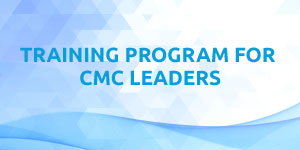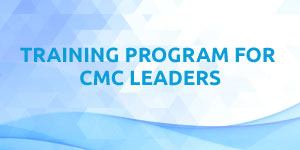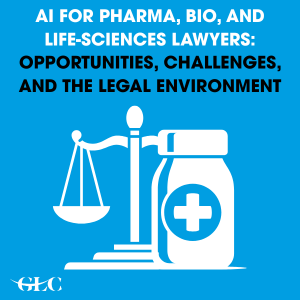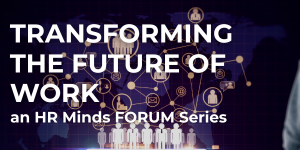Free knowledge to monitor the world of events. Have a look at our must read Blogs on Pharma, Finance, HR, Health and Cross Industry.
AI for Pharma, Bio, and Life-Sciences Lawyers: Opportunities, Challenges, and the Legal Environment
2022-08-16
AI holds huge promise to make processes more efficient, reduce costs, and get treatments to patients faster.
Artificial Intelligence (AI) is transforming the pharmaceutical, biopharmaceutical, and life sciences industries with unprecedented velocity. From accelerating the development of drugs to enabling personalization of medicine, AI holds huge promise to make processes more efficient, reduce costs, and get treatments to patients faster. But with these benefits are coming complex legal, ethical, and regulatory challenges that lawyers in these fields must address.
Why AI Matters in Pharma, Bio, and Life Sciences
AI solutions here are not mere possibilitiesalready reshaping industry operations:
- Drug discovery & development: AI can analyze enormous datasets to identify lead compounds, predict drug interactions, and shorten clinical trial times.
- Diagnostics & personalized medicine: Machine learning technologies are helping create more accurate diagnostic systems and tailored treatment regimens.
- Compliance regulation: Computer systems can monitor global regulation so that businesses will be compliant in an evolving landscape.
- Operational optimization: Automation based on artificial intelligence is streamlining from supply chain activities to pharmacovigilance reporting.
For legal advisors advising pharmaceutical, biotechnology, and life sciences companies, knowledge of these applications is required to provide relevant and future-forward counsel.
Legal and Regulatory Challenges
As AI adoption accelerates, so does the need for wise legal regulation. Of concern are:
- Intellectual Property (IP) Rights
- Ownership of product generated by AI toolsdevelopers, users, or AI itself?
- Patentability of creations by AI remains a disputed topic, especially for biotech innovations.
- Data Privacy & Security
- AI models require vast amounts of data, in most cases including sensitive health information of patients.
- Compliance with GDPR, HIPAA, and other privacy regulations is paramount, and international data transfers add additional complexity.
- Regulatory Approval of AI Tools
- The FDA, EMA, and others are revising their guidelines to take into account AI-based products and decision-making platforms.
- Continuous learning systems pose a dilemma: how do you regulate an evolving algorithm?
- Liability & Accountability
- If an AI-powered diagnostic tool injures a patient because of an error, then who shall be held legally responsiblethe deploying institution, the healthcare institution, or the creator?
- Ethical Considerations
- Algorithmic bias may result in discriminatory healthcare outcomes.
- Transparency and explain ability of AI-driven decisions are becoming increasingly important in litigation and also in compliance.
The Lawyer's Role in an AI-Driven Future
Pharma, bio, and life sciences attorneys must break away from traditional compliance work to taking on strategic advisory roles. this involves:
- Monitor evolving regulations geographically to be able to forecast compliance.
- Offer advice on AI tool contracts, such as licensing arrangements, data-sharing transactions, and vendor contracts.
- Evaluate risk for exposure to liability when deploying AI.
- Make sure ethical frameworks are integrated into company policy.
- Facilitate innovation by helping clients protect IP rights for inventions created through AI.
Practical Steps for Legal Professionals
- Be Up to Date: Keep track of updates from governing bodies like FDA, EMA, and WHO regarding AI frameworks.
- Tech Savvy: Lawyers familiar with what AI systems can do will be better able to advise clients.
- Interdisciplinary Engagement: Work collaboratively with data scientists, compliance officers, and R&D teams to witness actual usage.
- Develop AI Governance Policies: Engage clients to put in place internal guidelines for the ethical deployment of AI, including bias audits and transparency practices.
Conclusion
AI is not another technology fadit's becoming the backbone of the pharmaceutical, biotech, and life sciences sectors. For lawyers, it means opportunity and responsibility: opportunity to assist with the development of regulatory frameworks that drive innovation and responsibility to defend patient rights, enable compliance, and mitigate risk.
With the growth of the industry, lawyers who are receptive to AI will be key in bridging the innovation-regulation gap to enable a future where technology and law work together to improve human well-being.
Do you want to understand more? Join our upcoming AI for Pharma, Bio, and Life-Science Lawyers Masterclass
By Shara Najimudeen, Digital Marketing Executive, GLC Europe, Colombo Office, Sri Lanka.
Get a feel for our events

Training Program for CMC Leaders - EU edition
14th September 2026 - 09th April 2027
Rich with practical insights and real-world applications
learn more >>
Training Program for CMC Leaders - US edition
14th September 2026 - 09th April 2027
Rich with practical insights and real-world applications
learn more >>
Advanced Stability Testing of Pharmaceuticals MasterClass - US edition
24-27 February, 2026
Increase the likelihood of studies receiving regulatory approval
learn more >>













